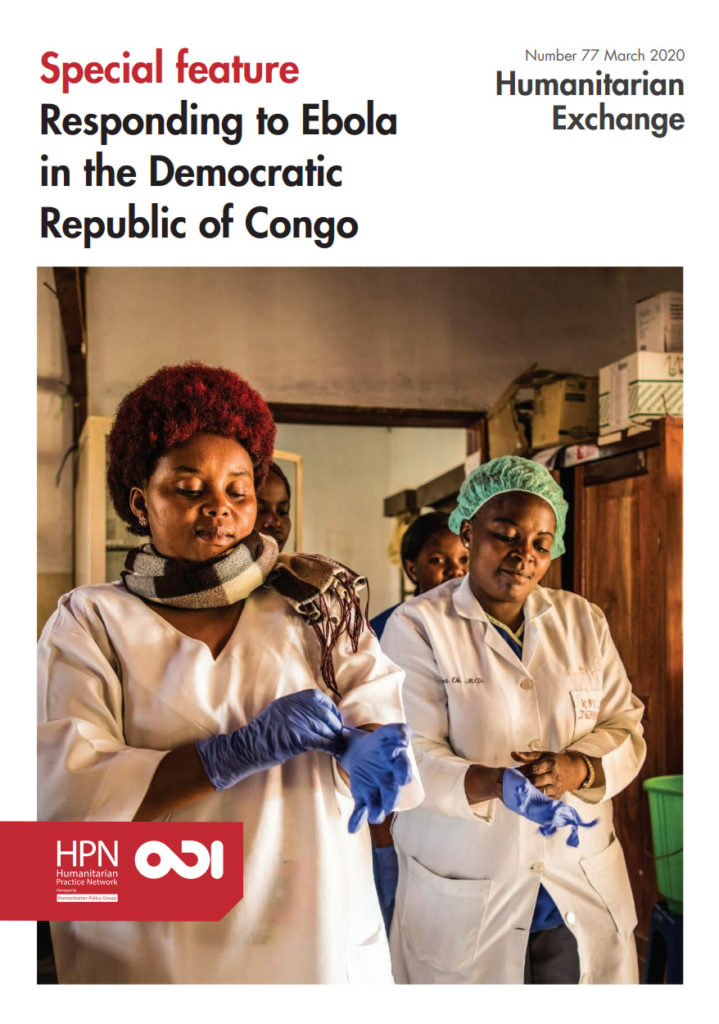Responders to the Ebola outbreak in eastern Democratic Republic of Congo (DRC) face tremendous challenges in halting the spread of infection, not the least of which is insecurity. Insecurity Insight reports that, between January and November 2019, there were more than 400 attacks against response actors, including threats, abductions and arson. Since January 2019, at least 20 health workers have been killed. According to the UN, the majority of security incidents affecting Ebola responders were linked to armed conflict, community resistance and civil unrest.
This article by Adelicia Fairbanks on behalf of EISF, published as part of Humanitarian Exchange Issue 77 by the Humanitarian Practice Network, explores the issue of insecurity in the Ebola response in DRC.
